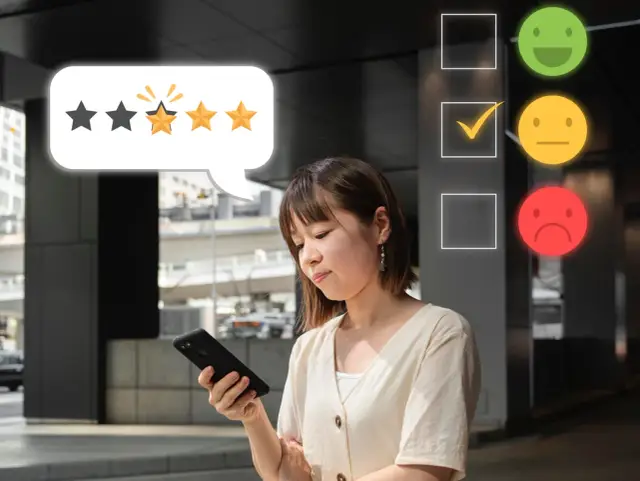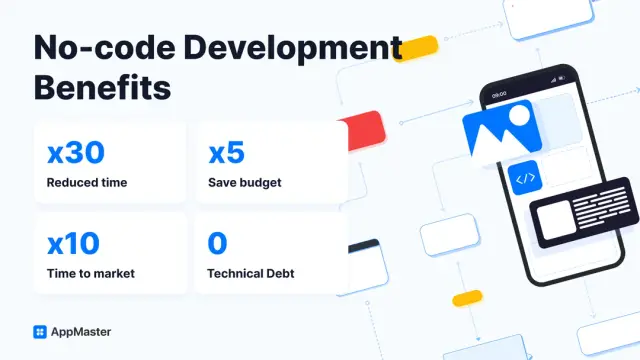Navigating Negative Feedback: Essential Tips for App Developers
Explore the essential tips for app developers on how to handle negative feedback and transform it into an opportunity for growth, better user experience, and long-term success.

The Nature of Negative Feedback
Negative feedback is an unavoidable aspect of any app development journey. It can come in various forms, ranging from user reviews on app stores, social media comments, to feedback from internal teams. Regardless of the source, negative feedback can often feel discouraging and damaging to developers' morale. However, the key to leveraging constructive criticism is understanding its nature in a broader context.
First, it is important to remember that people are more likely to leave feedback when they have had a negative experience. Users who are content with the app may not feel compelled to share their thoughts, creating a skewed perception of the overall feedback. Moreover, criticism often stems from frustration, unmet expectations, or high product standards, which can lead to exaggerated or even unjust comments.
Another aspect to consider is that app development is a process of continuous improvement. It is rare to create a perfect app on the first attempt, and even established apps are updated regularly in response to evolving user needs and technological advancements. Therefore, receiving negative feedback is a natural part of the app development lifecycle.
Understanding the Importance of Negative Feedback
Although negative feedback can be disheartening, it plays a crucial role in enhancing the app development process. Here are a few reasons why negative feedback is essential for app developers:
- Reveals Areas for Improvement: Negative feedback helps identify issues that may have gone unnoticed during development, allowing developers to make necessary changes and improve the app's functionality and user experience.
- Guides Feature Development: By understanding user pain points and what they expect from the app, developers can prioritize the right features and improvements that cater to their audience.
- Shapes User Experience: Feedback enables developers to fine-tune the app's design and layout, adapting it to specific user preferences and enhancing the overall user experience.
- Promotes Accountability: Taking responsibility for any shortcomings and addressing user concerns fosters trust in the development team and showcases commitment to continually improving the app.
- Enables Informed Decision-making: Comprehensive knowledge of user needs and expectations empowers developers to make data-driven decisions to enhance the app's value proposition and user satisfaction.

Strategies for Handling Negative Feedback
Dealing with negative feedback can be challenging but managing it effectively is crucial for an app's long-term success. Here are some strategies to help developers navigate and address negative feedback:
- Stay Open-minded: Treat negative feedback as an opportunity to learn and grow. Embrace the idea that criticism can lead to valuable insights and improvements in the app’s development.
- Acknowledge the Feedback: Respond to the person providing feedback promptly and professionally. Thank them for their input and let them know that their concerns have been noted and will be addressed.
- Analyze the Legitimacy: Not all feedback will be constructive or relevant. It's essential to evaluate each critique to determine its validity, considering the context, source, and specificity of the issue.
- Take Appropriate Action: Based on the analysis, take appropriate action to address valid concerns, tailoring app updates and improvements accordingly. Ensure that any changes align with the app's vision and target audience.
- Communicate with Users: Keep the lines of communication open with users who provided feedback. Inform them about the actions taken, keeping them engaged and demonstrating your commitment to continuous improvement.
- Learn from the Experience: Reflect on the experience and consider how it has improved the app, identified areas for growth, and provided insights into user expectations.
While handling negative feedback can be challenging, adopting the right mindset and approach can transform it into a powerful tool for enhancing your app's development, user experience, and overall success.
Turning Negative Feedback into a Positive Opportunity
Negative feedback can initially be disheartening for app developers, but it can also be a potential catalyst for growth when utilized effectively. By embracing critique and transforming it into a positive opportunity for improvement, you can not only address users' concerns but also set your app up for long-lasting success. Here are some steps to help you step forward in such a direction:
Identify the underlying issues
Analyze the feedback and determine its core issues. Understand the reasons behind the discontent and the expectations that the user has. Identifying the potential pain points will allow you to better address them and prevent similar complaints in the future.
Address user concerns promptly
Rapid response to user feedback demonstrates your commitment to the users' experience and ensures that your app doesn't lose out due to unresolved issues. Make the necessary changes and enhancements to showcase that you care about the user feedback and are dedicated to providing a superior app experience.
Learn from the experience
Each piece of feedback, both positive and negative, offers an opportunity to learn. Draw actionable insights from the users' concerns and use them to enhance your app, proactively fix potential issues, and improve the overall user experience.
Communicate improvements to users
Once your app's improvements are implemented, communicate these updates to the users who offered their feedback. Not only does this approach showcase that you value their opinions, but it also enhances user loyalty and fosters a meaningful relationship with your customer base.
Ultimately, by transforming negative feedback into opportunities for growth and development, app developers can create better products, foster satisfied customers, and maintain a proactive approach to addressing user concerns.
Maintaining a Positive Mindset While Facing Critique
Handling negative feedback can be challenging, and maintaining a positive mindset is crucial in navigating through it constructively. Developing resilience and keeping a healthy perspective can help you stay focused and motivated during turbulent times, turning criticism into successful learning experiences. Here are some tips for maintaining a positive mindset while facing negative feedback:
- Stay focused on your goals: Remember the primary objectives of your app and let them be your guiding force when dealing with feedback. While it may sting when users are dissatisfied with your product, remain steadfast in your pursuit of creating an exceptional app experience, and don't let negativity derail this mission.
- Embrace feedback as growth opportunities: Consider negative feedback as a chance for improvement and learning. By acknowledging that no app is perfect, you open the door for growth and development. Embrace the experience and use the insights to better understand your users and drive your app towards success.
- Learn from past experiences: Reminisce about previous instances of critique and reflect on how you managed to overcome them. Use these experiences as a springboard for handling future challenges and continuously refining your approach to addressing negative feedback.
- Sift out the relevant from the irrelevant: Understand that not all negative feedback will be useful or relevant. Some feedback may be polarized, misguided, or unconstructive, and it's essential to differentiate between legitimate concerns and irrelevant opinions. Doing so will help you stay focused on addressing real issues and prevent unnecessary stress from unwarranted negative feedback.
By cultivating a positive mindset and taking setbacks in stride, app developers can efficiently navigate the tumultuous waters of critique, acting as a foundation for long-term success in the ultra-competitive app ecosystem.
Leveraging No-Code Platforms for Rapid Responses
In addressing negative feedback, efficiently implementing changes and updates plays a crucial role in customer satisfaction. No-code platforms like AppMaster can empower app developers to quickly and effectively address user concerns by allowing them to make modifications to their applications without having to write extensive code.
AppMaster is a powerful no-code platform that uses a visual interface to enable development of backend, web, and mobile applications. Following are some advantages of leveraging AppMaster while addressing negative feedback:
Quickly resolve issues
With the visual drag-and-drop interface, developers can rapidly implement changes and fixes, ensuring a swift response to user feedback and preventing dissatisfaction from escalating.
Increase business agility
The ability to easily make adjustments and iterate your product without extensive coding boosts the overall business agility, helping you stay aligned with user expectations and stay ahead of competitors.
Enhance customer satisfaction
Utilizing AppMaster's no-code platform to address user concerns with agility results in improved customer satisfaction and fosters a mutually beneficial relationship between app developers and their user base.
Reduce technical debt
Since AppMaster generates applications from scratch whenever requirements are modified, it eliminates the technical debt, ensuring a streamlined and efficient development process.

Not only does leveraging no-code platforms like AppMaster offer rapid responses to user concerns, but it also helps app developers stay nimble and maintain a competitive advantage in today's fast-paced app development sphere.
To sum up, handling negative feedback is an integral part of the app development process. Embracing critique, maintaining a positive mindset, and effectively addressing concerns by leveraging powerful no-code platforms such as AppMaster can help app developers turn potential setbacks into meaningful success stories. By fostering an open-minded approach and continuously refining the app experience, developers can create satisfied customers and ensure long-term success in the app ecosystem.
Final Thoughts
Navigating negative feedback can be challenging for app developers, but with the right mindset and approach, it can be transformed into a valuable opportunity for growth and improvement. Always remember that feedback, both positive and negative, is an essential part of the development process. Instead of fearing criticism, welcome it and use it as a tool to refine your application and enhance user experience.
By acknowledging and addressing the negative feedback constructively, app developers can improve their product, build stronger connections with their users, and ultimately, deliver success in the long run. Furthermore, leveraging no-code platforms like AppMaster can empower app developers to implement changes promptly and maintain business agility. This way, they can continuously enhance user satisfaction and stay ahead in the competitive app development area. Embrace the negative feedback, learn from it, and let it fuel your journey towards delivering a better, more satisfying app experience for your users.
FAQ
Negative feedback is important for app developers because it highlights the areas of improvement in their application, helps in refining user experience, and provides valuable insights into user expectations and pain points.
App developers can handle negative feedback effectively by staying open-minded, acknowledging the feedback, analyzing its legitimacy, taking appropriate action, maintaining communication with the user, and learning from the experience.
Yes, app developers can turn negative feedback into a positive opportunity by identifying the underlying issues, addressing them promptly, iterating their product, and continuously improving user experience and satisfaction.
No-code platforms like AppMaster allow app developers to quickly and efficiently implement changes without extensive coding, enabling them to address user concerns promptly, maintain business agility, and eventually enhance customer satisfaction.
App developers can maintain a positive mindset by staying focused on their goals, considering feedback as an opportunity for growth, learning from past experiences, and remembering that not all feedback will be relevant or constructive.
Strategies for responding to negative feedback include: staying polite and professional, acknowledging the feedback, asking for clarification, offering assistance or solutions, thanking the user for their input, and implementing changes as needed.
App developers can use negative feedback as a valuable source of input to identify pain points, refine features and functionalities, optimize their app's performance, and overall, improve user experience and satisfaction.
App developers should not ignore negative feedback but rather, evaluate it to determine its legitimacy, apply necessary changes, and use it as an opportunity for growth and improvement.





